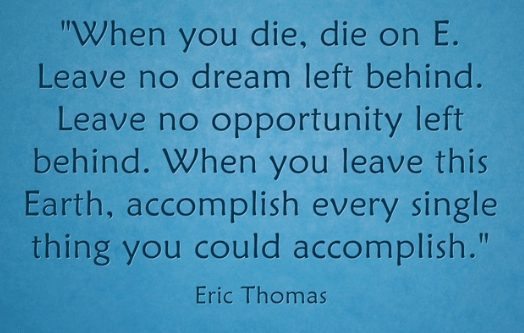What is Confirmation Bias?
Confirmation bias relates to how we find and process information.
In a world where information is available at the tip of our fingers, instantly and continuously, it is important to understand those processes.
A psychological term that has been pretty popular lately is ‘confirmation bias.’
What is confirmation bias, and how can you overcome it?
Confirmation bias is a term used to describe our underlying tendencies when looking for information.
Humans notice, focus on, and give greater credence to evidence that fits with our existing beliefs.
Confirmation bias can lead to professional and personal problems with our decision-making skills.
Understanding how problems can arise and how to overcome confirmation basis can help open up your mind to new possibilities and improve your life.
Why does confirmation bias happen?
There are a few reasons confirmation bias happens.
First, our brain is wired with shortcuts to help us process the ridiculous amount of information and stimuli we process daily.
Without these shortcuts, we wouldn’t be able to function.
Confirmation bias is a cognitive shortcut to help us identify and process evidence and information.
Humans are constantly making hypotheses and then searching for information to back them up.
Thanks to the survival instincts of our ancestors, we developed shortcuts to aid us in processing information as quickly as possible.
We look for the easiest path because changing one’s beliefs is difficult and takes time and effort.
So, it is easier for us to keep existing if the information we gather coincides with what we believe—no change is needed!
Second, having our beliefs validated and confirmed makes us feel good.
Knowing that you are right increases your self-esteem.
Being wrong about a core belief is uncomfortable.
It makes you question things like your intelligence and even your identity.
So, when we find information that coincides with what we think is true, it validates who we think we are.
This might make us feel good, but are we learning new things or stifling our own growth and development?
What does confirmation bias look like?
Confirmation bias means we will try to validate our existing beliefs by finding sources that confirm what we already know.
Let’s consider an example.
Do you think your favored political candidate is the best option out there?
If you Google that candidate and add words like “why is so & so the best choice for president,” you will get a slew of information consistent with your beliefs.
Now, if you Google, “why is so & so the worst choice for president,” you will also find similar information.
Assuming that all the information you get is accurate and true, what causes people to have such differing opinions?
There is where questioning your confirmation bias comes in handy.
Do you agree with the information presented, or are you deciding based on the belief that your political party is the best?
Confirmation bias can also be present when dealing with impressions.
If you are told in advance that someone is nice, then you will expect them to be and look for things that prove this to be true.
It works the same way in reverse.
If you have heard nothing but negative things about a person you will meet, then you will look for proof that they are, in fact, terrible.
So, what are the pitfalls of this cognitive shortcut?
Dangers of confirmation bias
Motivated reasoning encourages us to watch a particular news source, find information on certain sites, and read specific articles.
It feeds our need for confirmation bias.
However, motivated reasoning can reduce our ability to understand and interpret evidence.
This means that we are less likely to be swayed by a reasonable argument.
Tom Nichols, the author of The Death of Expertise, says that “Confirmation bias is the most common—and easily the most irritating—obstacle to productive conversation, and not just between experts and laypeople.”
He adds:
“We all do it, and you can be certain that you and I and everyone who’s ever had an argument with anyone about anything has infuriated someone else with it.”
We have become so entrenched in our own theologies, behaviors, and beliefs that productive conversation is becoming extinct.
Years ago, you could discuss something with people who held a different point of view.
Maybe you would never agree with them—but the sharing of ideas was still present.
This sharing of ideas is critical to learning, expressing empathy, and growth.
You don’t have to change your mind, but conversations like those could give you a deeper understanding of a situation.
They could also help you understand people whose shoes you haven’t walked in.
Now, these types of conversations never happen because we unfriend everyone who disagrees with us.
Or a conversation devolves into an argument at warp speed—resulting in name-calling and other childish behavior.
We are better than our confirmation biases.
We have minds that are capable of great things.
They should be able to handle processing information about our beliefs and opinions so we can be enlightened and compassionate.
How to overcome confirmation bias
There are a few simple (yet profound) things you can do to overcome your own confirmation bias.
- Let go of fear
- Put your ego aside
- Have tough conversations
- Ask questions
- Don’t create an information bubble
You might think that fear is a strong word to use for considering things that challenge our beliefs, but it isn’t.
There is the fear that your whole life will be different if you consider something other than what you believe to be true.
People fear change—even when that change is for the better.
You might also feel you will lose part of your identity, or maybe even family and friends if you were to change your beliefs.
Be brave.
Change is necessary to become a better version of yourself.
Nothing changes if nothing changes.
Putting your ego aside can seem as daunting as meaningful change.
If you change your core belief, then what does that say about you?
Were you just wrong and dumb for however many years you believed something else was true?
The answer is no!
We do our best with the information we have and the habits we cultivate.
Learning to do something different, or embrace new concepts, is an ability that too many humans neglect to use.
It doesn’t make you dumb to question things or change your mind.
It means you are using your mind, which is a good thing!
Keep having those hard conversations with people who hold different opinions.
Set the tone that this isn’t about proving someone right or wrong.
It is a sharing of ideas and an information-gathering quest.
Establish ground rules if you need to, but keep yourself open to conversations with others.
Let them know you will ask some hard questions, but you think they should also!
Last, don’t just throw away everyone who doesn’t see the world the same way you do.
If you only surround yourself with people who think and believe as you do, then you will limit yourself from a sizeable chunk of the surrounding people.
Sure, you won’t need to have difficult or uncomfortable conversations, but you will miss out on the chance to expand your mind.
Having an open mind is worth it
Exploring information now that you know confirmation bias is a huge step forward.
You can spot when you are doing it and make conscious decisions to be better.
Having an open mind is also good for you and the surrounding people!
You will gain new insights that help you learn new things about the world.
This keeps things fresh and exciting.
When you have an open mind, you are also more likely to experience new things.
Experiences make up our lives, so don’t limit yours on purpose!
By keeping your mind open, you can also achieve a higher level of personal growth.
Who knows where this will take you?
You will also feel more optimistic, which can improve your mental health and strength.
These are all great things, and we can achieve them by something as simple as reading an article that we know goes against something we believe in—just to see the other side’s point of view.
You don’t have to agree, but you should be open to listening.
What are some examples of when you let confirmation bias help you decide?
What resulted from that decision?
Let us know in the comment section below.











